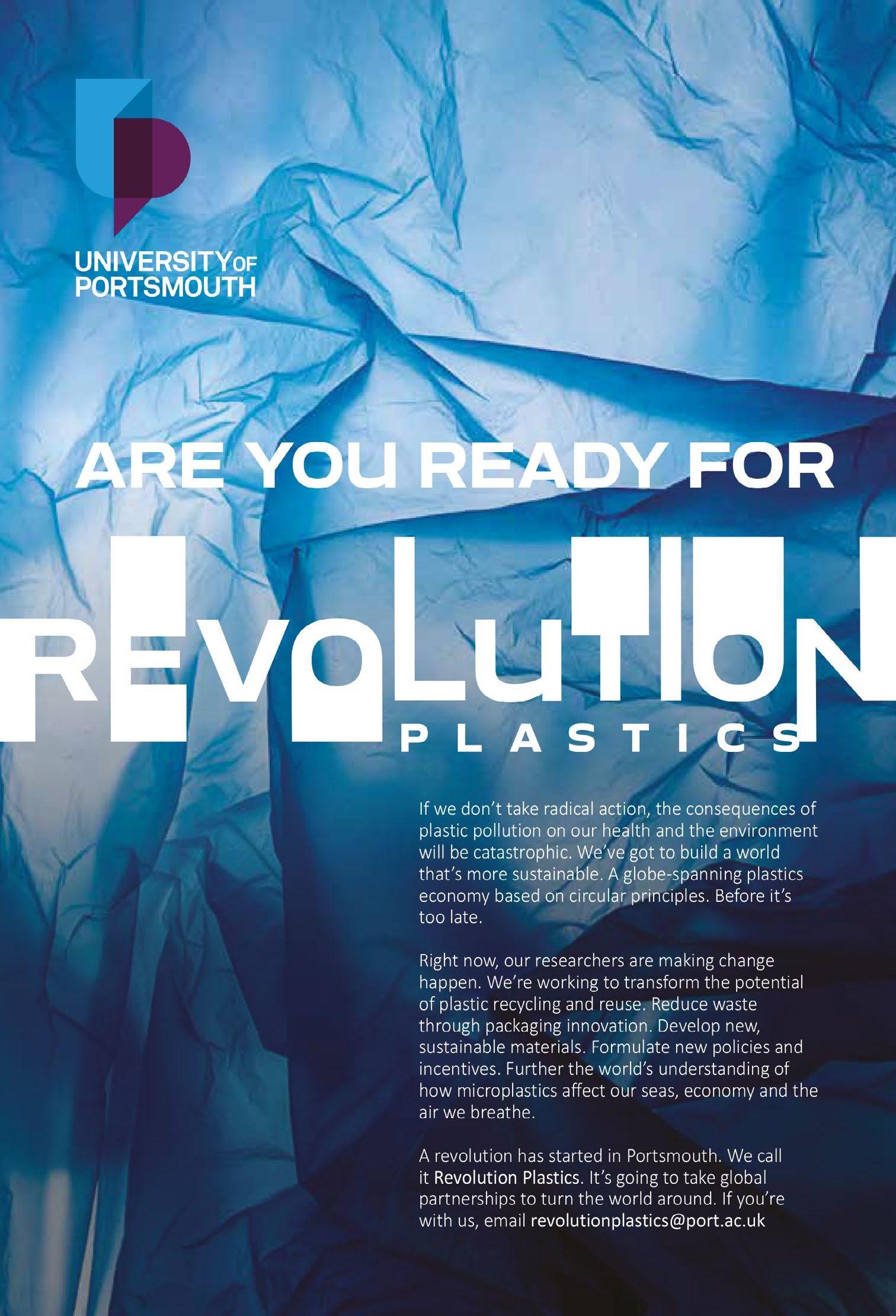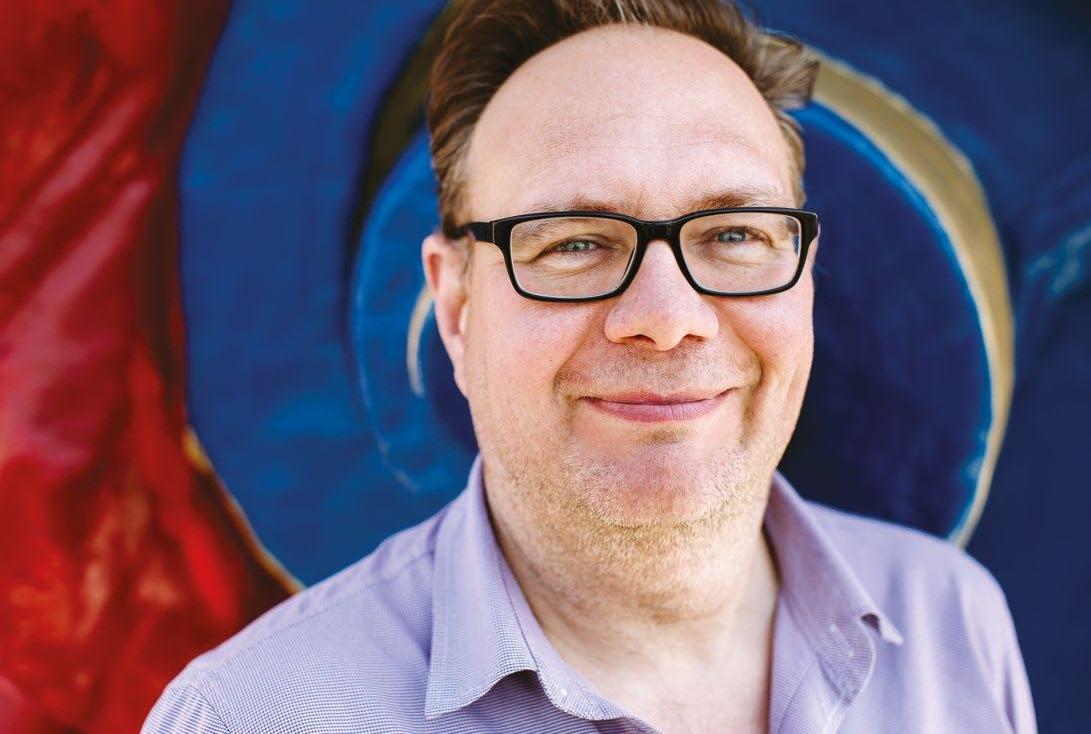
6 minute read
WHY THE BLACK LIVES MATTER
WHY THE BLACK LIVES MATTER PROTEST WAS SO IMPORTANT TO ME
We asked Southsea student Sienna Chin to give us her thoughts on attending the recent Black Lives Matter protest in Portsmouth, and she shared why it was such an important event for the city.
Advertisement
Racism isn’t just being called a racial slur. It’s any setting, thus improving the quality of life and being followed with a closer eye than the rest race relations for all. of the customers in a packed shop, it’s having your hair petted and constant comments on how exotic, outlandish, and rare it is. Black people were reported as being “over-policed and under-protected” by the Metropolitan Police in the Macpherson report (1999), and it is still It’s the worry of losing friends over racially incredibly relevant today. insensitive jokes, seeming “too sensitive” and never seeing them again. Within Hampshire alone, black people are 12 times more likely to be stopped and searched than their Or keeping those friends and knowing that they find white counterparts (Crime, justice and the law, your experiences funny but being ‘reassured’ that they 2020). This causes black communities to feel as would “never say the ‘n-word’ around you”. though the police are not on their side, and therefore It’s having uncomfortable discussions with people who creates a tense relationship in which black people think your desire to be treated equally is up for debate. are hesitant to contact them in times of need.
After my first direct experience of racism, I guarded myself by lowering the expectations I held of my peers to stand up for their friends of colour in the face of ignorance and adversity. Social gatherings with people like these, only ever left me feeling even more alien and disheartened, and caused further damage to my own self-esteem and identity.
When I first heard about the Portsmouth and Southsea BLM protest, I felt nervous, I knew it was finally time to speak up in a place that was nothing like a classroom; a space that is inviting, encouraging, an area for sharing new ideas. It was the place where I had, on occasion been made to feel alienated and vulnerable: the streets of Southsea.
“Black Lives Matter” means we matter too.
The BLM movement is a peaceful form of activism, not only about protesting against injustices, but also petitions for change, working with leaders of communities, interaction with local councillors and governing bodies, and actively challenging forms of racial prejudice in The Guildhall Square protest changed my entire outlook on Southsea. I was, in the best way possible, so surprised that this many people from Southsea and wider Portsmouth were present. They showed so much compassion and empathy for their black peers and the global movement. Every white protester was listening to our experiences, and are still using their own voices to educate others who struggle to empathise due to a lack of black, asian, and minority ethnic (BAME) people in their lives.
It was heartwarming to see so many familiar faces, being greeted by people I knew and receiving many supportive messages afterwards.
I was reminded that BLM is so important, as it uplifts and inspires so many young people from BAME backgrounds and will undoubtedly make their experiences in the world, both professionally and socially, so much better.
The happiness and belonging I finally feel, after being a part of such a movement has had a huge impact on my life. I now feel free to use my voice and to feel at home in the city that I love.
THE PHOTOGRAPHER AND MARKETING CONSULTANT, CHARLOTTE GRIFFITHS, TOOK SIENNA’S PHOTO (P. 16) Charlotte talks about her reaction to the Black Lives Matter movement and some of her experiences
The BLM movement has given me a voice, but she came home wanting to be like other because until now, I couldn’t find the children in her class. At 10 years old she is very words, or feel confident enough to speak aware of race, equality and diversity. She is about how I feel. fascinated in learning about black history and Racism comes in many different forms and it is was delighted to discover she shares her first something I have experienced at different stages of name with Harriet Tubman, the former slave and my life as a child and teen growing up in American abolitionist. Waterlooville. And later as an adult, on my own Racism is not new, it has always been with us, doorstep in Southsea at the time of the referendum, and will be until we continue to educate and “vote UKIP” was shouted at me from a van window as unite. No judgement, no hate. Pure love. it drove past. Then a while ago, in front of my eldest As a photographer I feel privileged to announce child someone shouted a racially offensive word as a photography project with women of colour they cycled away… “mummy, what did they say…?”. from Portsmouth that will take place in July. The day my daughter, at 5 years old, told me she If you are interested in taking part email wanted lighter skin, made me so, so sad. I don’t charlottegriffithsphotography@gmail.com know exactly what happened at school that day, Together we will celebrate and educate.

CLARION CALL FOR A PLASTICS REVOLUTION Adapted article from SOLVE magazine, the University of Portsmouth’s recently-published research magazine. See www.port.ac.uk/solve REPORT BY BRAD COLLIS
When the first production line was conceived and installed to massproduce pulley blocks for the Royal Navy in the latter stages of the Napoleonic Wars, it placed Portsmouth at the start of the Industrial Revolution. Today, Portsmouth is leading another revolution – to change the world's relationship with one of the twentieth century’s most pervasive technologies: plastic. Teams of scientists, business-leaders, campaigners and citizens are being assembled by the University of Portsmouth to transform the manufacture, use and disposal of this seductively convenient but polluting material, which has generated a contamination crisis on land and at sea.
Revolution Plastics, as the initiative has been dubbed, has set out to create a new plastics economy based on improved recyclability, policy support from all tiers of government, and community engagement to achieve behavioural change in the use of plastics.

WHY PORTSMOUTH? Portsmouth is seen as a microcosm of the technical, economic, societal and political hurdles that need to be cleared in most countries to enable changes to plastics life cycles and environmental management. Portsmouth has vulnerable coastal and marine environments, faces rising sea levels, is adjacent to UNESCO’s Biosphere Reserve on the Isle of Wight, and has the UK’s highest urban population density outside London, with pockets of deprivation and poor health. There is also a rising level of environmental awareness through local organisations and groups advocating sustainability, conservation and plastic waste reduction. This is the community foundation that the University intends to support and build upon. An extensive survey of Portsmouth residents found most people are acutely aware of plastic pollution, along with climate change and energy issues. Almost all respondents said they had made some effort already to modify their uses of plastics, such as using alternative shopping bags, refusing plastic straws and increasing their recycling. The survey showed most people are keen to reduce plastic waste, but they require guidance, support and, critically, assurance they will not be the ones bearing the cost.
This is where the science –chemical, industrial, economic










